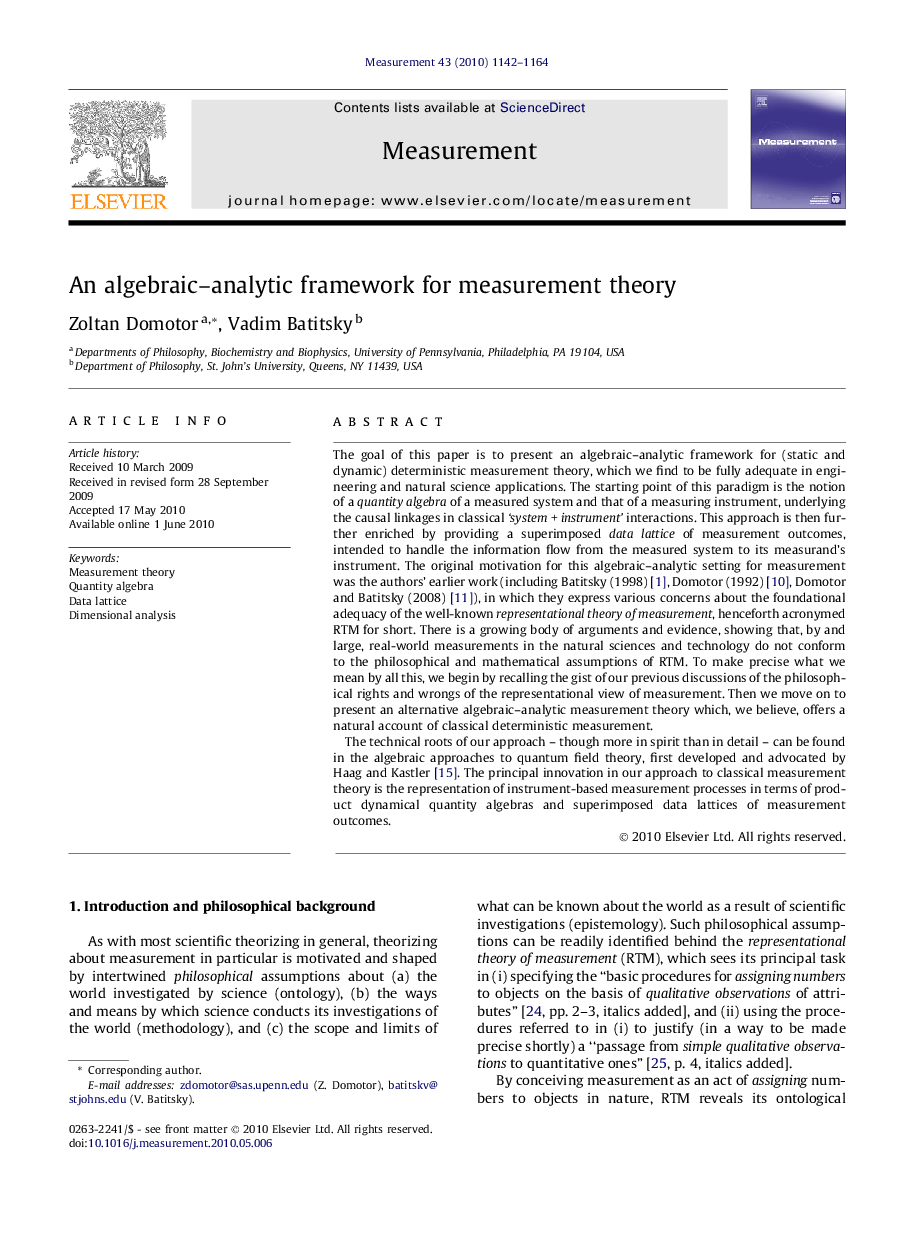| کد مقاله | کد نشریه | سال انتشار | مقاله انگلیسی | نسخه تمام متن |
|---|---|---|---|---|
| 731567 | 893074 | 2010 | 23 صفحه PDF | دانلود رایگان |

The goal of this paper is to present an algebraic–analytic framework for (static and dynamic) deterministic measurement theory, which we find to be fully adequate in engineering and natural science applications. The starting point of this paradigm is the notion of a quantity algebra of a measured system and that of a measuring instrument, underlying the causal linkages in classical ‘system + instrument’ interactions. This approach is then further enriched by providing a superimposed data lattice of measurement outcomes, intended to handle the information flow from the measured system to its measurand’s instrument. The original motivation for this algebraic–analytic setting for measurement was the authors’ earlier work (including Batitsky (1998) [1], Domotor (1992) [10], Domotor and Batitsky (2008) [11]), in which they express various concerns about the foundational adequacy of the well-known representational theory of measurement, henceforth acronymed RTM for short. There is a growing body of arguments and evidence, showing that, by and large, real-world measurements in the natural sciences and technology do not conform to the philosophical and mathematical assumptions of RTM. To make precise what we mean by all this, we begin by recalling the gist of our previous discussions of the philosophical rights and wrongs of the representational view of measurement. Then we move on to present an alternative algebraic–analytic measurement theory which, we believe, offers a natural account of classical deterministic measurement.The technical roots of our approach – though more in spirit than in detail – can be found in the algebraic approaches to quantum field theory, first developed and advocated by Haag and Kastler [15]. The principal innovation in our approach to classical measurement theory is the representation of instrument-based measurement processes in terms of product dynamical quantity algebras and superimposed data lattices of measurement outcomes.
Journal: Measurement - Volume 43, Issue 9, November 2010, Pages 1142–1164